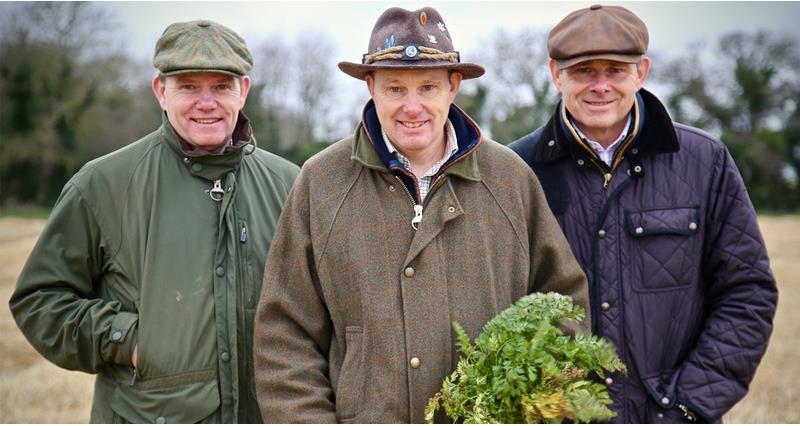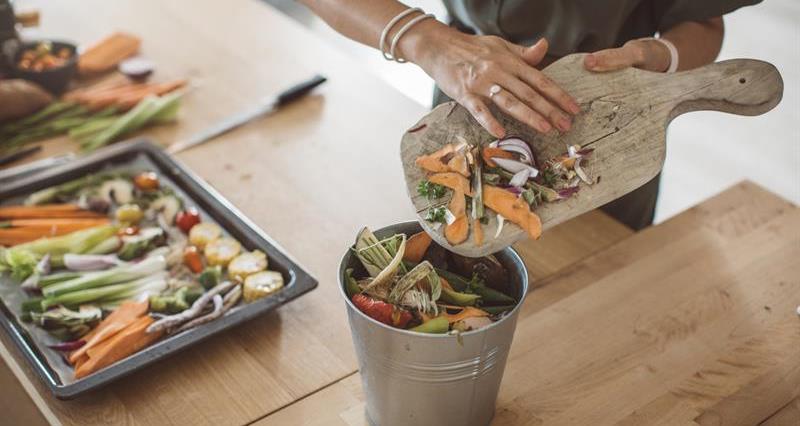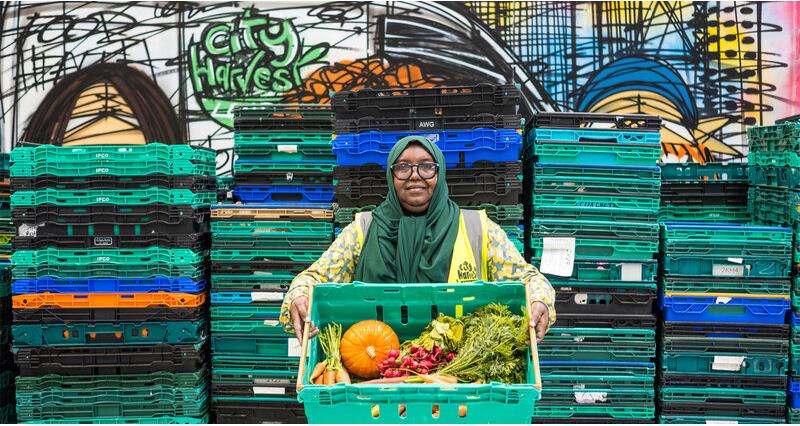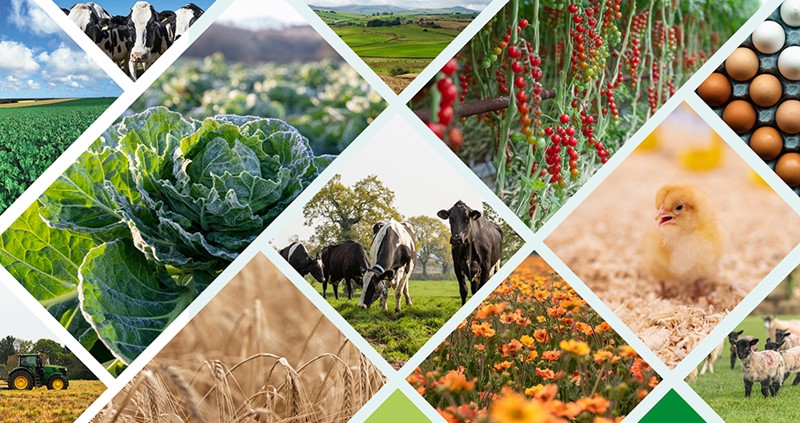The issue of food waste can be an emotive one, often picked up in the media. Food waste occurs throughout the whole food supply chain, and although it is a significant problem at the post-retail end of the chain (household and hospitality sector food waste), it is documented that there is a degree of wastage throughout the chain from primary production through distribution, retail, and consumers.
Food waste has a negative financial, environmental, and social impact on all aspects of the supply chain as well as the wider society. Food security and sustainable intensification are of extreme importance to UK farming and our industry is striving hard to improve in both areas. Food waste is costly for the entire food supply chain especially considering growing consumer demands and increased challenges of managing volatility.
Did you know?
The most common causes of food waste at a farm level include retailer standards, cancelled / amended orders, labour shortages, over-production and volatile weather events.
Policy proposals to reduce food waste by retailers involve being flexible with specifications, aligning promotional campaigns to production, being accountable for cancelled orders, improved transparency and accuracy of forecasting, and increasing the generation of data.
Food waste, surplus and loss – what’s the difference?
Food waste: Food that completes the food supply chain up to a final product, of good quality and fit for consumption, but still doesn’t get consumed because it is discarded, whether or not after it is left to spoil or expire. This can happen during the home and restaurants for example.
Food loss: Food that gets spilled, spoilt or otherwise lost, or incurs reduction of quality and value during its process in the food supply chain before it reaches its final product stage
Food surplus: Food which cannot be used or is no longer required for its original purpose; this is also known as the stage before food waste. This can occur for a variety of reasons including overproduction, retailer requirements and labelling.
Sources: stopfoodlosswaste.org, wrap.org.uk
Facts and figures
One of the biggest difficulties is getting hold of accurate figures measuring the extent of food waste, although some attempts have been made to estimate the scale of the problem. Food waste is a priority objective for WRAP (The Waste and Resources Action Programme). WRAP has produced some of the most comprehensive assessments of the scale of the problem and potential solutions.
Even though 8.4 million people in the UK are in food poverty, WRAP estimates that total UK post farm-gate food and drink waste is around 9.5 million tonnes per year. This has a value of over £19 billion a year and the total GHG emissions associated with wasted food and drink in the UK account for approximately 25 Mt CO2e (down from 29 Mt CO2e in 2015).
Unlike the rest of supply chain, there is no reliable estimate for food waste pre-farm gate in the UK. This is mainly because farming is subject to the uncertainties of the natural world. Yields vary from year to year, as well as the quality, size and shape of the product, timing of harvest, and other factors such as customer demand.
In contrast with other parts of the food system, there is less certainty about the scale of food waste on farm. Recent WRAP and WWF estimates suggest that it is in the region of 1.6-3.3 million tonnes.
WRAP continues to undertake research on food waste in primary production. Its first study (a single year study and not an estimate of annual losses) revealed that for just two important crops, strawberry and lettuce, £30 million of food ended up as waste (9% of strawberry production and 19% of lettuces grown).
Food waste in the agricultural and horticulture sectors
Wastage can be a particular challenge in the production of fruit and vegetable crops. Food waste can be caused by:
- retailer standards (produce not meeting strict specifications)
- cancelled/ amended retail orders due to changes in consumer demand and retail demand forecasting inaccuracies
- over-production to avoid retailer fines for falling short
- harvesting and processing wastage.
One burden a grower may face, is having to find alternative markets for surplus or out of spec produce.
Alternative markets can include:
- selling at a lower grade for processed food
- selling at wholesale markets, farm shops etc. where specifications may be more flexible
- selling crops for animal feed
As a last resort, growers may be faced with absorbing the cost of growing the produce by ploughing it back into the soil to provide nutrients and organic matter.
Increasingly so, businesses are investing in treatment technologies such as composting and AD (anaerobic digestion) which produces a soil amendment/fertiliser and (in the case of AD) bioenergy.
The issue of food waste must be tackled for a more efficient, better functioning supply chain where producers are able to find a sustainable system and outlet for all their produce.
Retailer action
All of the main retailers have signed up to The Courtauld Commitment 2030, a voluntary agreement which allows united action across the entire UK food chain to deliver reductions in food waste, GHG emissions and water stress from fark to fork. This will help the UK food and drink sector achieve environmental goals.
The NFU is now an official engagement partner to the commitment, which aims to reduce food waste by 50% by 2030.
Retailers and farmers are actively involved in initiatives to help prevent food surplus, becoming food waste. For example, sending surplus to make animal feed or diverting edible surplus food to redistributions charities, such as FareShare, The Bread and Butter Thing, Company Shop Group, The Felix Project and City Harvest.
Redistribution strategies need to be developed to prevent food surplus becoming food waste throughout the whole food chain, especially to prevent valuable and nutritious food being wasted at a time when the country is experiencing a cost of living crisis.
Measuring your waste
Whilst the NFU does not believe measuring food waste on farm should be mandatory, we support the increased voluntary measurement of food surplus and waste, especially where it can be quantified and used to improve best practice.
Research by WRAP finds that waste levels tend to vary significantly across growers, with often a significant difference between expected and measured food waste rates.
This measuring of food surplus and waste also had possible financial benefits, with WRAP outlining a potential 20% increase in profits for farm enterprises if surplus and waste is reduced to minimum reported rates.

We suspect there may be an increased requirement by retailers for primary producers to measure and report food waste in the future, if this is something that you are not regularly practicing, WRAP’s Target, Measure, Act campaign is a great starting point.
Read how NFU Organic Forum chair Andrew Burgess used WRAP’s methodology to investigate if they have waste anywhere along their production process.
Consumer change
Food waste at the consumer end of the supply chain has a significant impact on losses. Around 43 million tonnes of food are purchased in the UK, the majority for use at home.
The amount of food wasted post-farm-gate in the UK is equivalent to between a fifth and a quarter of that purchased by consumers for in home and out of home consumption (22%). By weight, household food waste makes up 70% of the UK post-farm-gate total, manufacturing 16%, hospitality and food service 12% and retail 3%.
Consumers need to have better access to information on how to correctly store food, the difference between ‘best before’ and ‘use-by’ dates, meal planning and reducing unnecessary packaging. Consumer facing initiatives including the Love Food Hate Waste campaign led by WRAP have been very effective in this area. The campaigns aim to raise awareness of the need to reduce food waste and help consumers take practical action.
The impact on consumer waste can also be directly affected by retailers including in-store offers leading to unwanted food and excess packaging on products.
What is ‘wonky veg?’
Specifications can be both beneficial and problematic for growers. UK growers are proud of the high quality food they produce, but there are many factors that can affect whether the retailer specifications can be met from season to season.
However, many growers find retail specification too stringent, and not flexible to demand and supply challenges. Over many years these stringent quality parameters have embedded a buying culture in consumers to expect cosmetically perfect looking produce.
Many retailers have launched wonky veg lines to tackle the food waste issues, however these have not been as popular with consumers as initially once thought, and often retailers see in-store wastage on these lines as a result of not achieving sales expectations, because, cosmetically, these products do not look as good sat next to the core lines on shelf.
Growers also do not aim to grow ‘wonky veg’. Commercially it costs the same as growing ‘in spec’ produce, yet growers do not achieve the same financial returns as their core volume crops.
NFU position
Retailers should adopt greater flexibility in specifications to ensure it utilises the whole crop.
Improved carcase utilisation is also vital in order to reduce food waste. With increased demand for low cost food, it is imperative that retailers take responsibility for helping to drive consumer demand for other, less in demand products. For example, UK consumer demand for breast meat in chicken is high, but retailers could help to drive demand through education of other cuts of the chicken.
Minimising wastage during harvesting is also a primary aim for growers. Further research and development to improve plant genetics and create varieties resistant to drought and extreme temperatures would help improve yields. Plus ensuring a range of plant protection products is available on the market to ensure crop quality is maintained.
NFU asks
With all of the above causes in mind, an overview of the policy proposals the NFU believes would reduce food waste production if taken by all stakeholders within the supply chain are set out below:
1. Flexible specifications
Flexible specifications to assist in throughput of produce into the food chain:
- Consider how climate and other seasonal factors will influence produce specifications.
- Increase collaboration between producers and retailers to ensure that changes in produce specification are well communicated to assist in timely changes to grading specification.
2. Seasonal promotional campaigns
Act to ensure that promotional campaigns are aligned with production, taking into account seasonal and climatic factors.
These promotional campaigns should:
- Aim to increase consumption and throughput of produce at times of higher production;
- Promote seasonality of British fruit and vegetables to encourage greater sales and to reverse any consumption decline.
3. Accountability for the cancellation of orders at short notice
While there will always be a proportion of a produce which cannot be sold due to specifications, growers are often able to account for this and arrange alternative outlets in advance.
However, cancellations and changes to volume requirements by retailers (particularly at short notice) can leave growers with crops that they are unable to sell. This can lead to the generation of large amounts of food waste.
Where unexpected or unprecedented changes in demand cause an imbalance versus supply, a pre-agreed procedure which shares the risk between supplier and retailer must be established.
This will require a commitment from both the retailer and producer on how this change in demand will be managed and how the excess crop is utilised (e.g. sales promotions, diverted to processing).
This is particularly time critical for perishable crops. These aims can also be achieved through the production of more accurate forecasts (see immediately below).
4. Accurate demand forecasting
Produce accurate forecasts underwritten by the end customer that a guaranteed proportion of the crop will be purchased at a pre-agreed price.
Forecasts and production programmes need to be developed well in advance, ideally at least a year before harvest. This provides farmers with the ability to undertake important business
decisions such as the area of land to rent and the volume of seed to plant. Hence better match supply and demand, and contribute towards minimising wastage.
- GSCOP (Groceries Supply Code of Practice) – forces a duty of care to retailers to ensure they work with their supplier to produce accurate forecasting and promotional plans. When these plans are developed in line with producer’s crop availability and customers’ demands it has a positive knock on impact to reducing food waste.
- We accept that even through the use of accurate forecasts there will be factors which cause unexpected changes in demand for produce. Steps must be taken to minimise the discrepancy between volumes predicted in production programmes and the actual quantity accepted by retailers.
5. Increase the generation of data
Increase the generation of data on the volumes of food waste produced on-farm and in other parts of the supply chain.
Consideration during data collection should be given to the following:
- All figures must be supported by qualitative descriptions of the causes of the waste so that strategies to reduce waste can be better targeted;
- It needs to be clear how the data will be gathered, stored, distributed, and paid for to increase confidence in the suitable use of the data. Participants must be provided with reassurance about the ownership and control over what data is shared and how data is utilised. This includes providing appropriate protections for the use of data, restricting its use to anonymised macro level analysis and protecting sensitive personal and commercial information. If sufficient confidence is achieved that appropriate safeguards on data sharing and use are in place, data collection and sharing could yield significant benefits for growers, government, and supporting industries.
See our manifesto asks
Our manifesto
Our general election manifesto – Farming for Britain's Future – outlines our key asks of the next government to ensure farmers and growers can continue to deliver for the environment, economy and local communities while producing more of the great British food we all enjoy.



